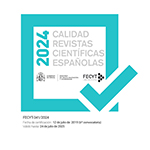L’espressione dell’epistemicità e dell’evidenzialità in siciliano. Gli avverbi in -ca
Resumen
In questo contributo descriverò i mezzi presenti in siciliano per esprimere le categorie dell’epistemicità e dell’evidenzialità. Pur riconoscendo le differenze sul piano concettuale e teorico, mostrerò che il siciliano presenta lo stesso processo di formazione di elementi epistemici ed evidenziali, un processo che ha origine nella fusione di un elemento lessicale (un verbo o un aggettivo) con il complementatore -ca: dicica, parica, penzica e capacica. Dal punto di vista morfologico e sintattico questi elementi si comportano da avverbi; semanticamente, offrono chiari esempi di distinzioni modali e funzionali, a volte anche sottili (per es. in relazione ad una scala epistemica). Data la ridotta autonomia degli avverbi evidenziali ed epistemici del siciliano, il processo che ha portato alla loro formazione è da considerarsi come un processo di grammaticalizzazione. Un’analisi approfondita degli avverbi evidenziali ci porta inoltre a concludere che essi svolgono le stesse funzioni degli evidenziali grammaticali in altre lingue, rendendo pertanto irrilevante la distinzione tra espressioni lessicali ed espressioni grammaticali spesso sottolineata nel dominio dell’evidenzialità.
Descargas
Descarga artículo
Licencia
La revista Cuadernos de Filología Italiana, para fomentar el intercambio global del conocimiento, facilita el acceso sin restricciones a sus contenidos desde el momento de su publicación en la presente edición electrónica, y por eso es una revista de acceso abierto. Los originales publicados en esta revista son propiedad de la Universidad Complutense de Madrid y es obligatorio citar su procedencia en cualquier reproducción total o parcial. Todos los contenidos se distribuyen bajo una licencia de uso y distribución Creative Commons Reconocimiento 4.0 (CC BY 4.0). Esta circunstancia ha de hacerse constar expresamente de esta forma cuando sea necesario. Puede consultar la versión informativa y el texto legal de la licencia.










